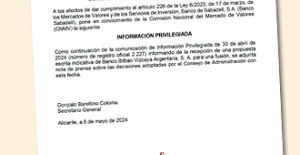Public Health France has just made public a survey on the monitoring of STIs in mainland France, and its results may seem worrying. Since 2020, the number of cases of the three STIs studied (chlamydia, gonorrhea and syphilis) has skyrocketed across the entire territory, according to this survey coordinated by the Sentinelles network of general practitioners. And these figures most certainly underestimate the real incidence, underlines Douada Niaré, main author of the survey. “The analyzes focused on cases declared voluntarily by doctors in the Sentinel network between 2020 and 2022, which excludes all those not declared and of course people who have never been tested.” Nevertheless, experts want to be reassuring: the increase in incidence most likely reflects an intensification of screening activity in recent years.
In France, the number of chlamydia infections jumped by 16% between 2020 and 2022. Representing a little more than half of cases, women are the most affected. However, regardless of sex, the infection mainly concerns young people aged 15 to 25: 21% of cases among men were declared in this age group, 33% for women.
The upward trend was even more marked for the two other STIs which exploded between 2020 and 2022: 91% for gonorrhea and 110% for syphilis. For these two infections, men were on the front line. They represented 77.7% of gonorrhea cases; 22% of patients were between 15 and 25 years old and 20% between 30 and 39 years old. Regarding syphilis, men account for 90% of cases, including 22.5% among those aged 50 and over.
» READ ALSO - Condoms remain essential against sexually transmitted infections
Experts explain these resurgences primarily by the Covid-19 pandemic. If successive confinements have limited the possibility of meeting unknown partners, it seems that they have also slowed down screening activity. “Certain centers having closed during this period, this could have caused delays in diagnosis, a greater circulation of STIs and therefore an increase in their incidence,” explains Pascal Pugliese, president of the French Society for the Fight against AIDS (SFLS) .
The largest increase, according to this survey, was observed among men who have sex with men (MSM). The proportion of chlamydia infections involving MSM doubled between 2020 and 2022, going from 6.9% to 18.4% of total cases. The same goes for gonococcal infections: 28% affected MSM in 2020, compared to 54% in 2022. Syphilis is a little different: three quarters of cases were declared following relationships between men, regardless of the year of monitoring.
However, specialists point out, the surge in STIs is nothing new. It has been observed in France for several years, according to surveillance data from the National Health Data System (SNDS), and could be partly explained by an increase in screening activity. Excluding the Covid-19 bracket, surveys show that this activity doubled between 2014 and 2022 for the search for chlamydia and gonococci. “The dynamic is therefore not necessarily worrying because the increase in screening and diagnostics allows early treatment and control of their spread, which is good news,” reassures Dr. Pugliese.
This would also be explained by the recommendations of the health authorities which have allowed, since 2021, general practitioners to initiate and monitor Prep users in community medicine. “Prep, which is preventive HIV treatment intended for HIV-negative people at high risk, is accompanied by quarterly screening for other STIs. The increase in diagnoses can therefore also be linked to greater monitoring of Prep users,” explains Pascal Pugliese.
» READ ALSO - HIV-AIDS: a candidate treatment for lasting remission
On the other hand, experts are concerned about the insufficient use of condoms. “I too often see young people in relationships for 2 or 3 months who have already had unprotected sex without being screened,” says Professor Nicolas Dupin, dermatologist in charge of the sexual health center at Hôtel-Dieu ( AP-HP) in Paris.
Consequently, deplores the doctor, it is the symptomatology which leads to consultation. And although most STIs are curable with appropriate treatment, they can have serious consequences in people at risk. “I've seen patients who start, for example, syphilis with a stroke. This infection can also lead to fetal death in utero or other sometimes severe sequelae when it occurs in pregnant women,” warns Dr Dupin.
Specialists remind us of the importance of not trivializing “basic” actions: wearing a condom, repeated screening for STIs before committing to a new partner, implementing preventive treatment of Prep for people exposed to HIV, vaccination prevention for papillomavirus (HPV) infections and hepatitis B. “When possible, it is imperative to inform one's partner(s) in the event of diagnosis to break the chains of transmission on the one hand, and not to not be reinfected with the same partner who has not been screened or possibly treated,” adds Dr. Pugliese.

 Finding yourself face to face with a man or a bear? The debate that shakes up social networks
Finding yourself face to face with a man or a bear? The debate that shakes up social networks Sabadell rejects the merger with BBVA and will fight to remain alone
Sabadell rejects the merger with BBVA and will fight to remain alone In Germany, the far left wants to cap the price of “doner kebabs”
In Germany, the far left wants to cap the price of “doner kebabs” Israel-Hamas war: Gaza between hope of truce and fear of Israeli offensive in the South
Israel-Hamas war: Gaza between hope of truce and fear of Israeli offensive in the South The presence of blood in the urine, a warning sign of bladder cancer
The presence of blood in the urine, a warning sign of bladder cancer A baby whose mother smoked during pregnancy will age more quickly
A baby whose mother smoked during pregnancy will age more quickly The euro zone economy grows in April at its best pace in almost a year but inflationary pressure increases
The euro zone economy grows in April at its best pace in almost a year but inflationary pressure increases Children born thanks to PMA do not have more cancers than others
Children born thanks to PMA do not have more cancers than others “The prices are astronomical”: to enjoy the Olympics with family, Sabrina spent... 8,000 euros
“The prices are astronomical”: to enjoy the Olympics with family, Sabrina spent... 8,000 euros “House of the Dragon”, “Succession”… Max, the new streaming platform from HBO and Discovery, launched in France on June 11
“House of the Dragon”, “Succession”… Max, the new streaming platform from HBO and Discovery, launched in France on June 11 The A13 motorway will finally reopen this Friday, in one direction only
The A13 motorway will finally reopen this Friday, in one direction only TNT commission of inquiry: tensions between LFI deputies and Macronists before the vote on the report
TNT commission of inquiry: tensions between LFI deputies and Macronists before the vote on the report The Coubertin Spirit, Eternal Memory, Planet of the Apes... Films to watch this week
The Coubertin Spirit, Eternal Memory, Planet of the Apes... Films to watch this week Rappers Drake and Kendrick Lamar vie for the spotlight
Rappers Drake and Kendrick Lamar vie for the spotlight In Istanbul, the ancient Byzantine church of Saint-Sauveur-in-Chora reopens for Muslim worship
In Istanbul, the ancient Byzantine church of Saint-Sauveur-in-Chora reopens for Muslim worship David Castello-Lopes: a fresh wind blows on the one-man show with his show Authentique
David Castello-Lopes: a fresh wind blows on the one-man show with his show Authentique Omoda 7, another Chinese car that could be manufactured in Spain
Omoda 7, another Chinese car that could be manufactured in Spain BYD chooses CA Auto Bank as financial partner in Spain
BYD chooses CA Auto Bank as financial partner in Spain Tesla and Baidu sign key agreement to boost development of autonomous driving
Tesla and Baidu sign key agreement to boost development of autonomous driving Skoda Kodiaq 2024: a 'beast' plug-in hybrid SUV
Skoda Kodiaq 2024: a 'beast' plug-in hybrid SUV The home mortgage firm rises 3.8% in February and the average interest moderates to 3.33%
The home mortgage firm rises 3.8% in February and the average interest moderates to 3.33% This is how housing prices have changed in Spain in the last decade
This is how housing prices have changed in Spain in the last decade The home mortgage firm drops 10% in January and interest soars to 3.46%
The home mortgage firm drops 10% in January and interest soars to 3.46% The jewel of the Rocío de Nagüeles urbanization: a dream villa in Marbella
The jewel of the Rocío de Nagüeles urbanization: a dream villa in Marbella Institutions: senators want to restore the accumulation of mandates and put an end to the automatic presence of ex-presidents on the Constitutional Council
Institutions: senators want to restore the accumulation of mandates and put an end to the automatic presence of ex-presidents on the Constitutional Council Europeans: David Lisnard expresses his “essential and vital” support for François-Xavier Bellamy
Europeans: David Lisnard expresses his “essential and vital” support for François-Xavier Bellamy Facing Jordan Bardella, the popularity match turns to Gabriel Attal’s advantage
Facing Jordan Bardella, the popularity match turns to Gabriel Attal’s advantage Europeans: a senior official on the National Rally list
Europeans: a senior official on the National Rally list These French cities that will boycott the World Cup in Qatar
These French cities that will boycott the World Cup in Qatar Ligue 1: at what time and on which channel to watch the Multiplex on Sunday?
Ligue 1: at what time and on which channel to watch the Multiplex on Sunday? PSG-Dortmund: Hummels’ (big) tackle to “teams who wanted to play against” BVB
PSG-Dortmund: Hummels’ (big) tackle to “teams who wanted to play against” BVB Top 14: Pierre Bochaton extends with UBB until 2027
Top 14: Pierre Bochaton extends with UBB until 2027 Tennis: Monfils beaten, Atmane surprises and advances to the 2nd round in Rome
Tennis: Monfils beaten, Atmane surprises and advances to the 2nd round in Rome


















